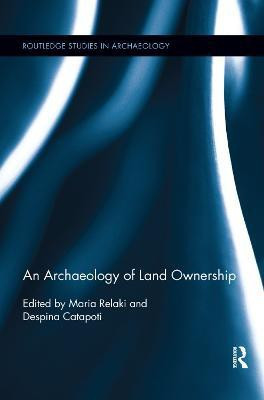An Archaeology of Land Ownership(English, Paperback, unknown)
Quick Overview
Product Price Comparison
Within archaeological studies, land tenure has been mainly studied from the viewpoint of ownership. A host of studies has argued about land ownership on the basis of the simple co-existence of artefacts on the landscape; other studies have tended to extrapolate land ownership from more indirect means. Particularly noteworthy is the tendency to portray land ownership as the driving force behind the emergence of social complexity, a primordial ingredient in the processes that led to the political and economic expansion of prehistoric societies. The association between people and land in all of these interpretive schemata is however less easy to detect analytically. Although various rubrics have been employed to identify such a connection - most notable among them the concepts of 'cultures,' 'regions,' or even 'households' - they take the links between land and people as a given and not as something that needs to be conceptually defined and empirically substantiated. An Archaeology of Land Ownership demonstrates that the relationship between people and land in the past is first and foremost an analytical issue, and one that calls for clarification not only at the level of definition, but also methodological applicability. Bringing together an international roster of specialists, the essays in this volume call attention to the processes by which links to land are established, the various forms that such links take and how they can change through time, as well as their importance in helping to forge or dilute an understanding of community at various circumstances.


